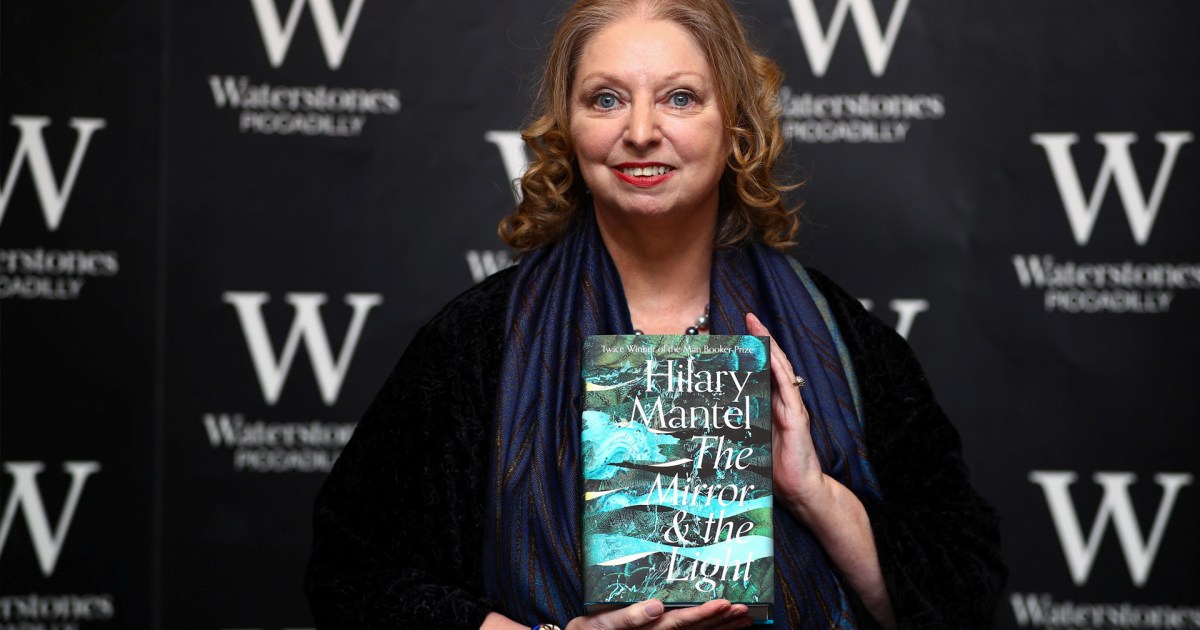The Booker Prize has included Hillary Mantle's novel "The Mirror and the Light" - the last in a trilogy that narrates the biography of a 16th-century English statesman Thomas Cromwell - in her long list, which would nominate her British author to be the first to win the same award three Times.
Mantle's novel consists of approximately 900 pages. In the third part, she tells the story of the king's adviser and prime minister after the novel was opened by beheading King Anne Boleyn's wife in 1536, and monitors the last years of Cromwell's personal and political life.
After winning the long list, she won one of 13 novels that could win this year's prize of £ 50,000. Mantle is one of four writers and writers who have twice won the prestigious award and will be the first to win the award for the third time.
A short list of six books will be unveiled on September 15, with the winner announced in November.
Biography similar to her characters
In 1972, Mantel married geologist Gerald McQueen, and in 1974 she began writing a novel about the French Revolution, later published in 1992, and in 1977 Mantle moved to Botswana with her husband where they lived for five years.
Later, they spent four years in Jeddah, Saudi Arabia, and Mantel published a novel and notes about this period, in which she said that after leaving Jeddah she felt "the happiest day of her life"!
Critics praised Mantell's 2009 long novel "Wolf Hall", which was Thomas Cromwell's first trilogy, and received the Booker Man Award in the same year, and the jury described the novel as "an unusual piece of storytelling", while Mantle said Upon receiving the award she will spend her money on personal whims.
In 2012, Mantle completed the story with a second part of the trilogy, titled "Bring Up the Bodies", to win the Bookman Award for the second time, and she became the first British writer and the first woman to win the prestigious award more than once.
Some of the novels turned into artistic plays produced by the Royal Shakespeare Company, and were also produced as a BBC mini series.
Sir Thomas Cromwell
Cromwell (1485-1540) was an English statesman and Minister of King Henry VIII who caused the separation of the Church of England from the Catholic Church, as a result of his personal whims and multiple marriages, and despite his simple upbringing he promoted Cromwell in positions, adopting projects for reform and modernization at the expense of the church's status and the privileges of the nobility.
His bold steps contributed to the manufacture of many enemies who described him as arrogant, and was finally beheaded on the orders of the King, after he was considered one of the strongest supporters of English reform, who transformed the British into a Protestant nation after they belonged to the Catholic Church.
Cromwell helped nullify the king's marriage to his wife despite the Catholic Pope's refusal to divorce, and Parliament approved the king's inauguration as head of the English Church, giving him the authority to legally abolish his existing marriage and marry his mistress, Anne Boleyn, however Sir Cromwell's relationship with Pauline, whom she believed conspired, worsened In favor of the king, who has become a new mistress.
And the king’s counselor and his minister played a major role in the tension between the church and the king. After the passage of the Sovereignty Law whereby the king simplifies his authority over the state and the church at the same time, some monks and clerics rejected the king’s decrees, causing them to be imprisoned by judicial decisions that were encouraged by Cromwell and included the dissolution of the monasteries and the confiscation of their property.
As the king embraced Catholicism, he expanded to pursue Protestants who reject Catholicism, and at the same time chased Catholics who did not recognize his supremacy over the Church and followed the Pope instead.
Anne Boleyn did not have a male heir to the king as he had wished, and the king eventually disposed of her by accusing her of treason, threatening the kingdom and beheading it in 1536.
The bloody tensions did not stop until after the king's death, as his daughter from his first wife, Queen Mary, the first repealed the laws of religious reform, pursued Protestants, and many supporters of the royal reform were killed during her father's reign.

